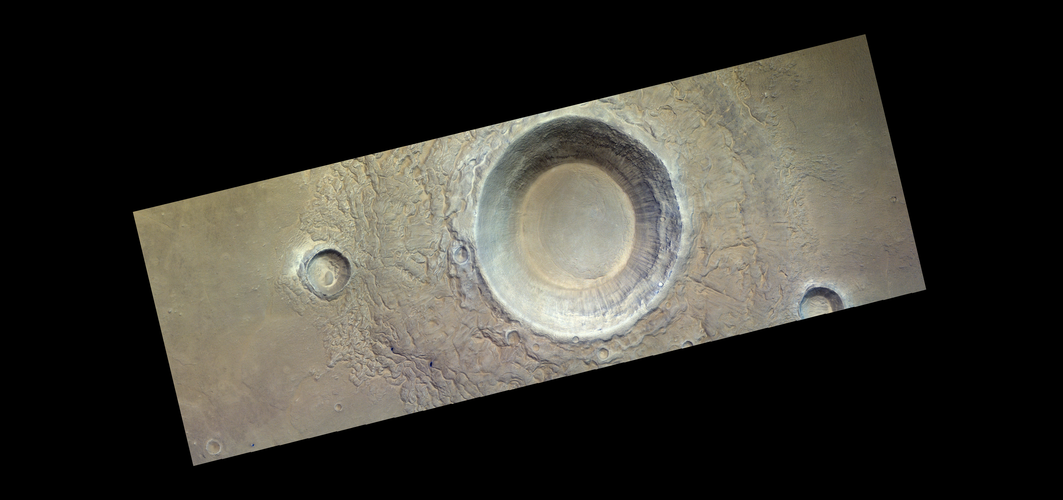A vast cavity on the Red Planet looks back at ExoMars Trace Gas Orbiter (TGO) with an icy stare in this sweeping panorama. The eight-kilometre crater sits in Utopia Planitia, the largest known impact basin in the Solar System with a diameter of roughly 3300 km, or twice the size of Earth’s Sahara Desert from north to south.
The region is known to scientists for showing intriguing ice-related features on and below the surface, including frost on the surface during the martian winter.
When ExoMars flew about 400 km above the crater – centered at 98.74°E, 34.37°N – it almost filled the full field of view of its most sophisticated colour camera, CaSSIS (Colour and Stereo Surface Imaging System).
This remnant of an ancient impact is just one of the many scars asteroids have inflicted upon the Red Planet. Water, volcanoes and impacts from asteroids shaped the martian surface in the ancient past. Mars is currently a cold, dry desert.
This view from CaSSIS shows a crater with material ejected in a way that scientists believe suggests the presence of water ice. When the asteroid hit this region of Mars, the water ice melted, and a mix of liquid water and dust rock was propelled from the top layers.
The smooth look of the crater is consistent with other features in the region having evidence of a water-ice history. Zooming into the crater it is possible to see streaks on the walls of the crater, showing evidence of landslides, and ripples sculpted by the wind.
For six years CaSSIS has been observing Mars in astonishing colour, from volcanic landscapes and colossal sand dunes to active dust devils. Understanding the history of water on Mars and if this once allowed life to flourish is at the heart of ESA’s ExoMars missions.
TGO’s full science mission began in 2018. The spacecraft is not only returning spectacular images, but also providing the best ever inventory of the planet’s atmospheric gases and mapping the planet’s surface for water-rich locations.



 Image:
The eye of the crater
Image:
The eye of the crater